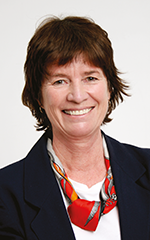

Sustainabilty is a huge issue, and our sister magazine, SA Instrumentation & Control has published an industry guide on Sustainability in Manufacturing, which is available at www.instrumentation.co.za. While researching this extremely important topic I came across some truly outstanding projects that show the capacity of humans to collaborate. One is the world’s largest and most powerful magnet, the Central Solenoid magnet, in the ITER fusion reactor in France, and we have a story on that with some mindblowing statistics.
Here comes quantum computing
Another example of scientists pushing the envelope is quantum computing. This is part of quantum mechanics, which explores how the physical world works at the molecular level. Basically it’s a new future generation of super-fast computers that process information as qubits, or quantum bits, rather than the regular bits of classical computing that exist in either the zero or one state. The qubits of quantum computing are tiny subatomic particles that can exist in many different states. This means they can exist as one and zero simultaneously or in any state between one and zero, like a coin spinning in midair.
This leap from dual to multivariate processing boosts computing power exponentially and will allow quantum computers to perform calculations far faster than classical computers. According to some estimates, quantum computers will operate 158 million times faster than the fastest supercomputers available today. Complex problems that currently take today’s most powerful supercomputer several years could potentially be solved in seconds.
Even though large scale quantum computers are not yet commercially available, quantum computing is already with us in a limited form. The next five to ten years could see it leap into the mainstream in the same way that classical computers did in the 70s and 80s. The world’s biggest tech companies are racing to harness quantum. IBM has over 60 functioning quantum computers, and collaborators that include industry giants from Exxon-Mobil to Sony. Its new 433-qubit Osprey chip is the world’s most powerful quantum processor, the speed of which, if represented in traditional bits, would far exceed the total number of atoms in the known universe. IBM has recognised the importance of sharing in order to build an industry around quantum, and is making some of its technology available for free. It has more than 20 quantum computers available on its open source quantum toolkit Qiskit, which has been downloaded more than 450 000 times.
Quantum is still in its infancy, and there are many challenges that need to be overcome before it becomes a mainstream technology. These include improving the stability of the hardware, and developing better algorithms and error-correction techniques. Nevertheless it’s here and it’s full of exciting possibilities. Recent breakthroughs and new government investment are taking us to a quantum revolution.
Quantum computers could open new frontiers in mathematics and science, helping to solve challenges like climate change and understanding how changing climate patterns affect food security.
It could be used to solve optimisation problems that are insoluble with classical computers, such as those encountered in logistics and supply chain management. Quantum machine learning could also make major improvements in data analysis and pattern recognition. This has implications for developing new materials, and tracing and routing financial transactions across global financial networks. All the big banks have their own quantum teams exploring what can be done in the next five to ten years.
The potential industrial uses are boundless, for example for creating new car models from scratch, which now takes at least four years. Boeing has been working with IBM’s quantum team since 2020 on designing new materials for its next generation of aircraft. Other problems where quantum computers can potentially be put to use include monitoring and predicting traffic flow across complex urban environments; and by simulating complex chemical reactions that are impossible to model with classical computers, it could accelerate the discovery of new drugs.
As with any new disruptive technology there are risks, and a major one is security. Today cybersecurity is based on RSA, an asymmetric cryptography algorithm used to transfer data safely. While a regular computer needs billions of years to crack RSA algorithms, a fast quantum computer would take hours. Today’s encryption algorithms would become obsolete, jeopardising communications, financial transactions, and even military defenses. The race is now on to devise post-quantum security. Researchers are working on developing new quantum-safe encryption methods that would be resistant to such attacks.
Overall, the future of quantum computing is bright, with the potential to revolutionise fields ranging from medicine to finance to cybersecurity. Even though it may not be widely accessible and practical for real-world applications for several years.
| Tel: | +27 11 543 5800 |
| Email: | [email protected] |
| www: | www.technews.co.za |
| Articles: | More information and articles about Technews Publishing |

© Technews Publishing (Pty) Ltd | All Rights Reserved